Acne
Acne is a skin condition that causes whiteheads, blackheads, and inflamed red growths (papules, pustules, and cysts) to form. Acne appears on the face, chest, shoulders and back. Acne is most common in teenagers, but it can happen at any age, even in infants or in adults in their 30s and 40s. Up to 85% of teenagers have some acne. Acne tends to run in families and can be triggered by:
- Hormonal changes related to menstrual periods, pregnancy, birth control pills, or stress
- Greasy or oily cosmetic and hair products
- Certain drugs (such as steroids, testosterone, estrogen, and phenytoin)
- High levels of humidity and sweating
Acne is NOT caused by eating certain food (that includes chocolate, soda, fries and fatty food).
Acne is not caused by poor hygiene.
What to do:
- Clean your skin gently once or twice a day. Remove all dirt or make-up. Avoid scrubbing. Shampoo your hair daily, especially if it is oily.
- Protect your skin from excessive sunlight by using sunscreens every morning.
- Don’t manipulate the pimples. This can lead to skin infections, deeper nodules and scarring.
- Avoid greasy cosmetics or creams. Take off make-up at night. Use "non-comedogenic" products.
- Use all medications as directed. Regular use of medication is essential.
- Be patient: It takes time to begin to note benefit – usually 1-2 months after starting treatment.
- At follow-up in 2-3 months, Dr Zayour may alter your treatment, depending on your response.
Topical treatment
How does it work? Retinoids help open up clogged pores and may cause the top layer of your skin to peel. Topical antibiotics kill acne bacteria and reduce inflammation.
How do I apply it? Apply it at bedtime. A pea sized amount is enough for the entire face. Avoid the area immediately around the mouth and eyes. Benzoyl Peroxide can bleach clothes or linens.
What are the side effects? May cause irritation: redness, dryness, tenderness. If too much irritation,
use every other night. If irritation is severe, stop medication and let Dr Zayour know.
Oral Antibiotics– Not for children under 12
How does it work? Helps kill bacteria; particularly useful for deep and inflamed lesions.
How do I take it? Take a pill with a full glass of water, with the meal.
What are the side effects? Most patients have no trouble. Uncommonly, stomach-upset, nausea or diarrhea may happen and rarely allergy. Do not take these pills if pregnant or trying to get pregnant.
Isotretinoin (Ro-Accutane®, Curacné®, Isotroin®, Isosupra®)
How does it work? Shrinks oil glands and decreases oil production.
Who should take it? Patients with very severe nodular, cystic or scarring acne, or for acne not responsive to the above treatments.
How do I take it? Take pills as directed by Dr Zayour.
What are the side effects? Please ask Dr Zayour for the Isotretinoin Form for a full list of side effects.
Minor procedures or treatments
Some procedures may occasionally be helpful: chemical skin peeling, removal of scars by dermabrasion, or removal, drainage, or injection of cysts with cortisone.
Outlook (Prognosis)
Acne usually goes away after the teenage years, but it may last into middle age. Scarring may occur if severe acne is not treated. Acne that is left untreated may cause depression to teenagers.
Make sure to let Dr Zayour know, even before your next appointment, if:
- Your acne is getting worse
- You develop scars as your acne clears up




